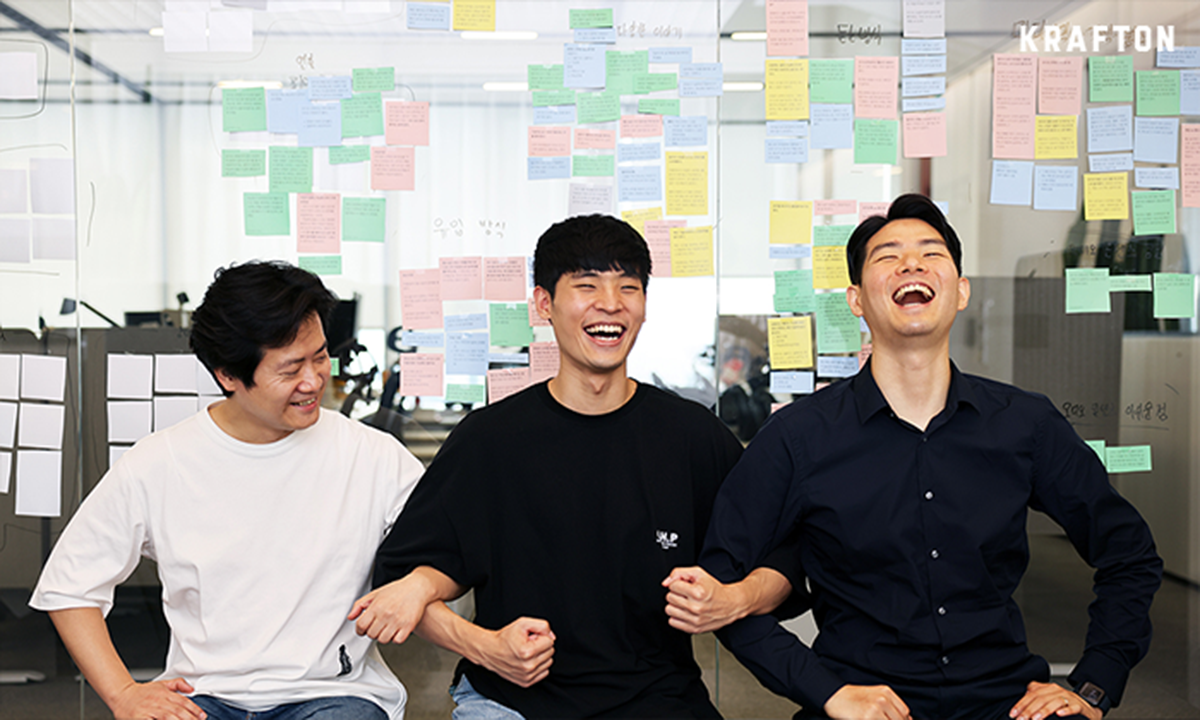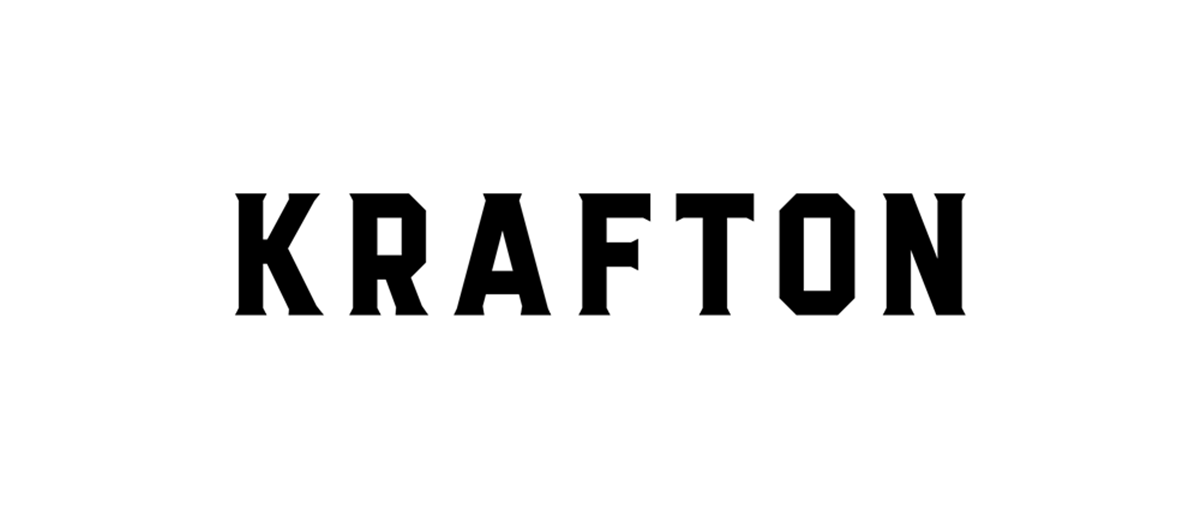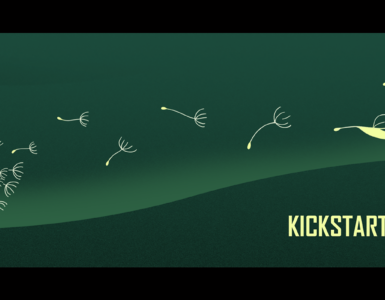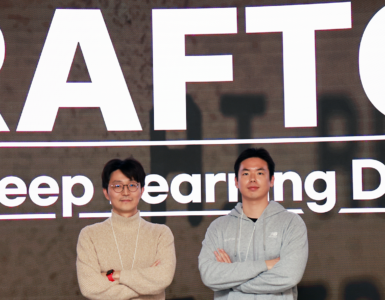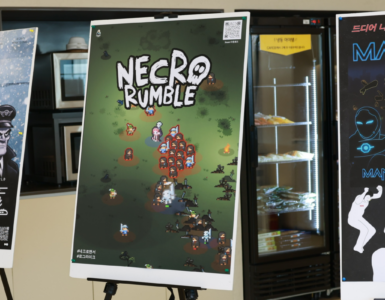An Interview with KRAFTON Project Beluga Dept.
In recent years, more and more writers have begun to share their own thoughts and stories in online spaces such as social media, blogs, and newsletters. Meanwhile, there are those who create services that allow these content creators to transcend the limits of the text medium, instead easily and independently communicating with fans through audio contents that embody the power of storytelling. We met with Dongwoon Choi, Jejoon Yoo, and Changho Lee, the three team leaders at KRAFTON Project Beluga Dept., who are changing the audio contents sector using “voice AI (Voice Artificial Intelligence).”

It’s nice to meet the three of you! Please introduce yourselves for our readers.
Dongwoon Choi (Dongwoon): Hello. I’m Dongwoon Choi, the leader of Beluga Product Team at Project Beluga Dept.
Jejoon Yoo (Jejoon): I’m Jejoon Yoo. I’m in charge of the business aspect at Beluga Biz Team as the team lead. I handle various areas outside of development and design, including marketing and community building.
Changho Lee (Changho): I’m Changho Lee, the leader of Beluga Dev Team. We’re in charge of developing a production tool that uses deep learning technology to convert text entered by writers into audio, and a mobile app for a contents platform to service the resulting audio contents.
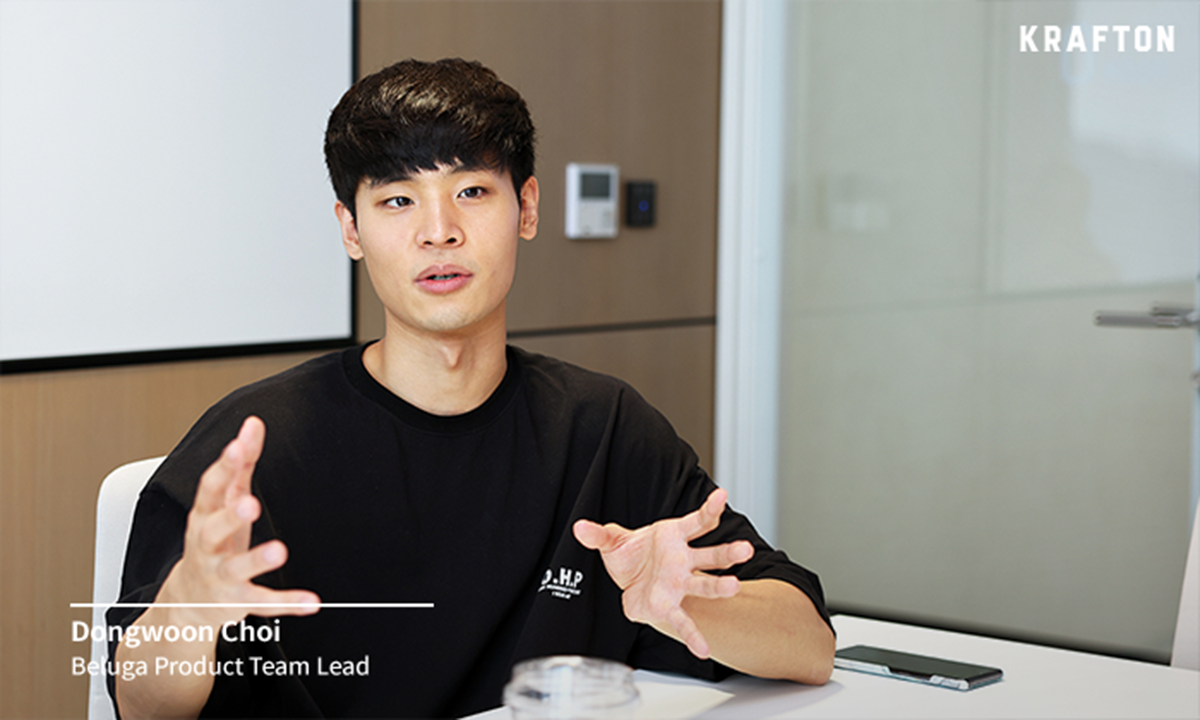
How would you describe Project Beluga Dept. as an organization?
Dongwoon: Project Beluga Dept. is a subordinate organization of Deep Learning Div. Deep Learning Div. is researching and developing various AI-based technologies to create a virtual human, or what we call “Virtual Friend” internally. We conducted a research project on the technology to create a voice for a virtual human, which we called “Project Dolphin.” Project Beluga is an offshoot of Project Dolphin, and when we were considering names for this new project, one of our coworkers came up with the idea to name it after the beluga, “because belugas are friends with dolphins.” Everyone liked the idea, so that became the name of our project. (Laughs)
So, Project Beluga began as an effort to develop a specific product based on deep learning technology?
Dongwoon: That’s right. In order to develop a certain technology, it’s necessary to have a real-life product that utilizes that technology so that we can learn from the market response and advance the technology further. That’s because it creates a more specific goal. A lot of companies are trying to develop a virtual human, but each company excels in a different area. KRAFTON has experience in creating video game characters that can hold a conversation with players and move on their own, so that’s the direction that our development efforts are going.
Creating a virtual human requires the AI to autonomously write text that fits the situation, generate voiceover in line with the text, and create visuals that fit the text and audio content. This long-term goal requires the development of various technologies and products, and Project Beluga contributes to the said goal by utilizing voice AI.
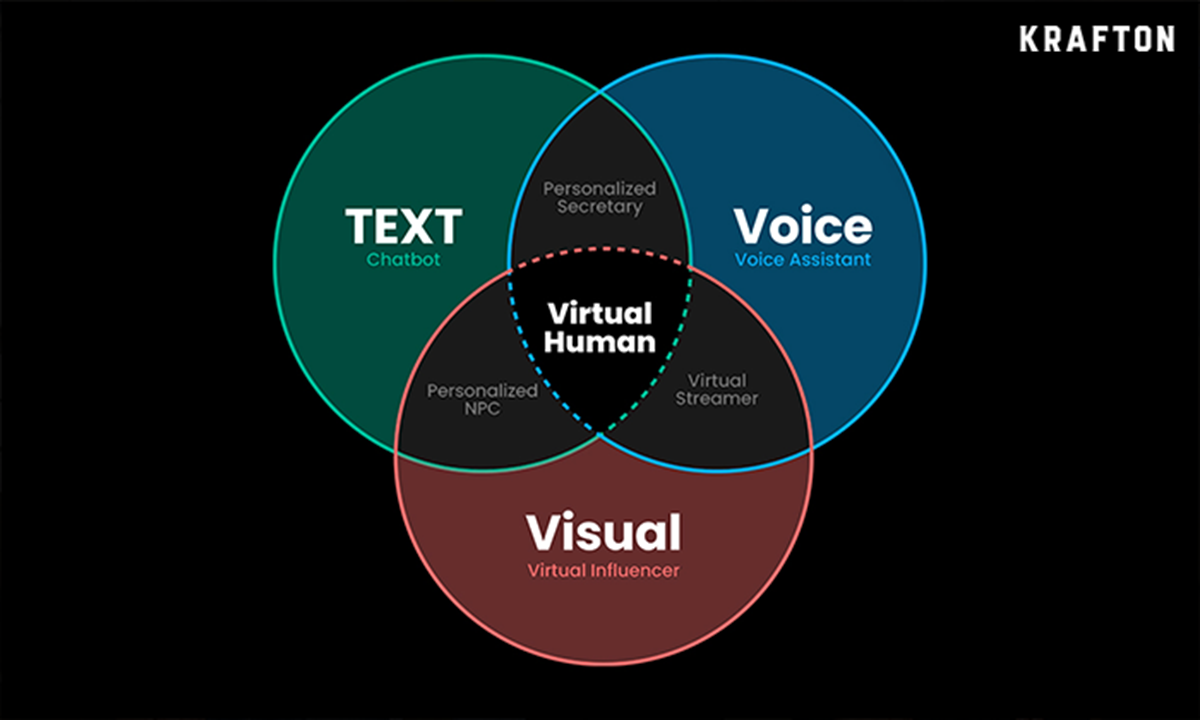
You said earlier that Project Beluga Dept. is developing a voice AI-based audio content production tool and a platform to distribute such contents. I’d like to know more about the background behind these products.
Dongwoon: When we look at changes in the method of creating visual content, at first, such content was created by a small number of professionals and later became available for the general public as the barrier to entry became much lower. In the future, I think AI will help just about anyone to be capable of creating visual content. We’re still a long way away from that. For now, there’s still a barrier between professionals and non-professionals when it comes to audio content. So, that’s why we envisioned a service through which anyone can create audio content through AI as long as they have a story to tell.
Around a year ago, when we were just about to launch Project Beluga, the rise of mobile-based social audio services led to a growing number of audio content creators who recorded their own content. However, it remained difficult for a single creator to voice multiple characters.
There are largely two types of voice AI technology. There’s “Text-To-Speech (TTS)” technology that converts text into a natural human voice, and “Voice Conversion (VC),” which converts a person’s voice into someone else’s voice. At first, we focused on producing content using voice conversion.
Some people found it interesting initially, but that was about it. The main appeal of audio content is storytelling and the ability to enjoy content without using one’s eyes and hands, but a lot of the produced content failed to take advantage of the inherent advantages of audio content. That’s why we decided to scrap the project and turn to TTS technology, which we have since used to continue taking on new challenges.
How far as Project Beluga progressed so far?
Dongwoon: We’re currently working on utilizing voice AI technology to create an audio content platform where anyone can tell their own story. These days, more and more people are taking to personal blogs, social media, online communities, and newsletters to write about their own stories. There’s also a growing demand among people to expand such content into media other than text with the aim to convey their thoughts. One of the ways to do that is through audio, but the problem is that the cost and technical barriers to entry for artists and individual creators to make their own audio content is far too high when using conventional methods.
As such, we’re focusing on helping individual artists to easily and conveniently generate their own audio content using various technologies including TTS to automate and simplify the process.
In other words, does that mean you’re preparing for the market launch of your audio content platform?
Dongwoon: Again, that’s correct. Our goal is to release an audio content platform that organically combines the three experiences of listening, sharing, and producing audio content. But, before that, we launched the voice AI-based audio content creation tool “QWERTYs” and a website based on the “No-code” tool to showcase the generated audio contents. We tentatively named this website “Audiofic” and we’re planning to integrate them.
Ultimately, we would like to build a playground where creators and fans can create and enjoy audio content together. We hope that it’ll become a space where anyone can create content and use it to communicate with others in a more proactive form of consumption, rather than the passive one-way consumption of content created by professionals.
Jejoon: The first step is to gather as many creators as we can. In particular, we’re focusing on newsletter creators, since newsletters are a type of content that guarantees a certain standard of quality and are distributed in a serial format. We’re also looking at web novel writers. Again, the point is that this type of content can be released as a series. As we gather more listeners, more people will be inspired to create content themselves. We’ll then work to make sure that this creates a cycle of content creation.

Could you tell us about your previous experience before joining Project Beluga?
Dongwoon: I started my career in the development team for “PUBG: BATTLEGROUNDS.” That was in 2017, when PUBG: BATTLEGROUNDS had just been released to explosive popularity. I wanted to join the company because I wanted to share in the experience of providing a global game service to a worldwide market as the only company to do so in Korea. I initially started out as a data analyst. Then I realized we needed to introduce a new business model and create a store system to sell in-game items in order to make sure that PUBG: BATTLEGROUNDS remains a beloved game for a long time. I volunteered to become part of such efforts and transferred to work as a product manager.
Then, in the first half of last year, I started to want a new challenge. KRAFTON CEO CH Kim asked me if I wanted to try something else based on the keywords, voice AI and content. I thought it sounded interesting, and now, here I am.
Jejoon: I started my career in the consulting industry. I also attended a global sportswear company for a while. Some time after I joined KRAFTON Chairman BG Chang recommended that I join Project Beluga. So, I had a meeting with Dongwoon and decided to join the project as I was inspired to accept the challenge. We’ve had the support and encouragement of the entire company and our fellow coworkers who work alongside us, which has bolstered all of us at Project Beluga Dept. to do our best to succeed in this endeavor.
Changho: I started working as a security and card payment developer in 2001. Then, in 2005, I joined a game development project with CH Kim, which led to me becoming a founding member of a development company called Ginno Games. At the time, I was the head of the engineering team. After that, I worked on developing PUBG: BATTLEGROUNDS for a long time. I heard about Project Beluga from CH Kim last year. As a veteran game developer myself, I wanted to work on developing a new service. I also personally enjoy listening to audio content such as podcasts.
When I worked on developing PUBG: BATTLEGROUNDS, I constantly had to take on the role of a manager. Since I’d worked in a management role for such a long time, I wanted to go back to programming, which was another major reason why I joined Project Beluga.

I’m curious to know whether you had faith in the new technology when you decided to try your hand at AI-based development.
Dongwoon: To be honest, I’m not sure I had faith in it as such, but I joined the project regardless because it looked fun. (Laughs) Kangwook Lee, the head of Deep Learning Div., once described deep learning as “deep sea” in an interview. I actually liked that it’s essentially uncharted territory with little inroads made so far. I felt that there must be a lot to delve into beneath the surface.
Jejoon: I’m the same. It was clear to me that the technology will only become more sophisticated with time, so it seemed to me that there must be a dizzying array of things we can create by defining this new area at a time when the world still didn’t really know how to use deep learning technology.
What are the backgrounds of members of Project Beluga Dept.?
Jejoon: I think Beluga Biz Team has the most diverse range of backgrounds. Some of us are from publishing companies or radio stations, while others used to work at audio streaming services. There’s even someone who worked on marketing design for an audio streaming company. In general, most of us have experience related to the audio and content sectors.
Changho: Beluga Dev Team has people who were front-end developers at other deep learning-related companies and even back-end developers for PUBG: BATTLEGROUNDS.
Dongwoon: Beluga Product Team has a lot of people who previously worked at startups, since our job is to create the product from the bottom up. My background is largely in growing a product that has already been made, as opposed to creating something from scratch, so I wanted to gain experience and capabilities that I didn’t have.
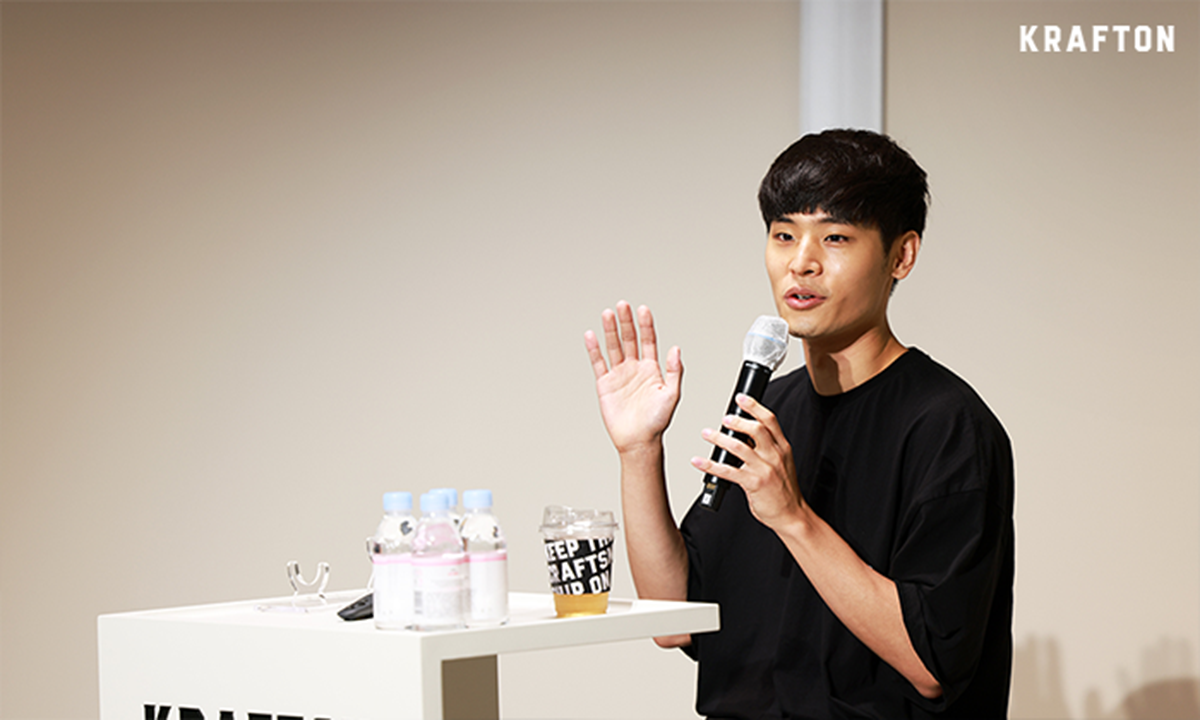
What are the skills or mindsets that you need to work at Project Beluga Dept.?
Dongwoon: First, you need to be openminded, since we need to create something unprecedented despite the uncertainty of success. I can’t stress the importance of an open mind enough when it comes to embracing something new. Second, you need a growth-oriented mindset. Because the outcome isn’t 100% guaranteed, you have to be able to enjoy the process itself and the discovery of self-growth through that process. Third, you also need a positive attitude. The challenge of creating something new inevitably brings a certain amount of failure, struggle, and hardship. It’s essential to be able to endure these difficulties with a positive mindset.
Changho: I have three examples as well. First of all, it’s necessary to have the attitude of continuously learning about the constant changes in technology, as well as striving to identify current trends. Secondly, development work requires you to sometimes develop complex functions and resolve bugs with causes that are difficult to identify, which requires the ability to immerse yourself in these tasks to find a solution. Finally, it’s also important to be able to work with others, since we don’t develop the product alone and we’re always working with colleagues in other sectors.
Jejoon: I tend to try and create a free environment for my team members within our organization. I want people who can build their own specialty and work autonomously within such freedom.
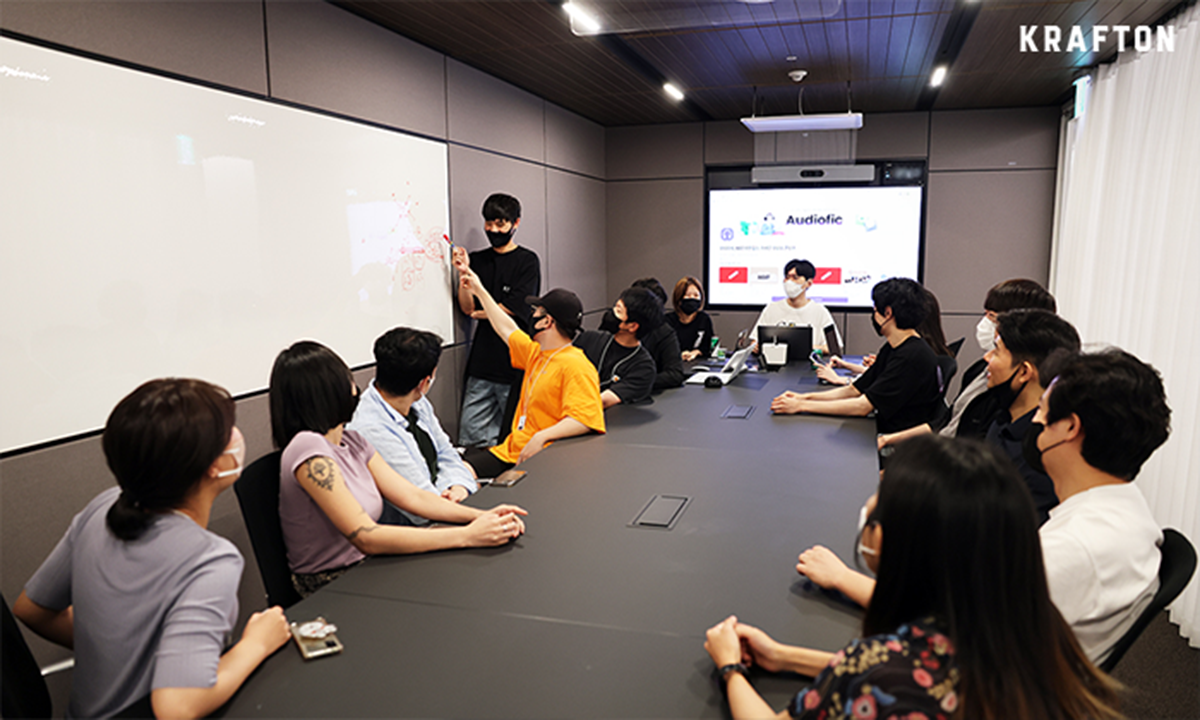
I get the feeling that Project Beluga Dept. must have its own way of doing things, even when it comes to sharing ideas among members and making decisions. How do you make sure that the department works together as one?
Dongwoon: Where do I start? (Laughs) We created several mechanisms to minimize the time required for coworkers to understand each other. First, we hold weekly “Coffee Chats” by matching two members at random to talk one on one. We also hold an “AMA (Ask Me Anything) session” with a different member every Thursday. We literally ask them anything, from why they became a marketer, why they joined Project Beluga, to whether they like mint chocolate. The most popular member for our AMA sessions is Changho. Our coworkers have a lot of questions for him, given his lengthy career, and he’s also good at giving answers.
In terms of decision-making, we use the “DACI (Driver, Approver, Contributor, Informed)” framework with the aim to clearly set out the role of each member. In addition, we recently started holding something called “Jjimjjimi Meetings.” It’s a meeting where we talk about things that we’re worried, anxious, or bothered about, even if it’s something that hasn’t been properly identified as a problem just yet. We feel that it’s too late to talk about something after it blows up or becomes identified as a problem. We gave it a cute name like “Jjimjjimi” with the aim to talk freely and informally. The core concept is that the meeting is only used to air out ideas, while the actual implementation is undertaken by the person in charge of that specific area.
Jejoon and Changho, how do you feel about these programs?
Changho: Other than me, there’s only one other coworker in our organization who is also in their 40s. I’m not a very chatty or sociable person to begin with, and given the age gap, I do feel a certain distance from my coworkers. The Coffee Chat felt a little awkward at the start, but I began to enjoy it once I tried it out and I found that I like learning about people, what kind of work they do, and how they think.
At one of the AMA sessions that was mentioned earlier, somebody once asked me how long I plan to keep working for. I replied that I’d like to carry on coding as long as my eyesight is still good enough to see the code. (Laughs)
Jejoon: I think that the Coffee Chat program is working particularly well. Since it picks the participants at random, it sometimes matches two people who are already working closely together. Even then, having a conversation over a cup of coffee can sometimes reveal new things to talk about.
We’re not a large-scale organization just yet, but sometimes the decision-making structure and the flow of communication in a company or a project has a way of becoming rather one-way. So, we’re hoping to ensure some balance in our internal communications through meetings and programs to allow our members to voice their various worries and concerns.
Other than that, we also took part in tests to analyze our individual personalities, strengths, and weaknesses during a workshop. We shared the results together, which was a great opportunity for us to understand each other better.
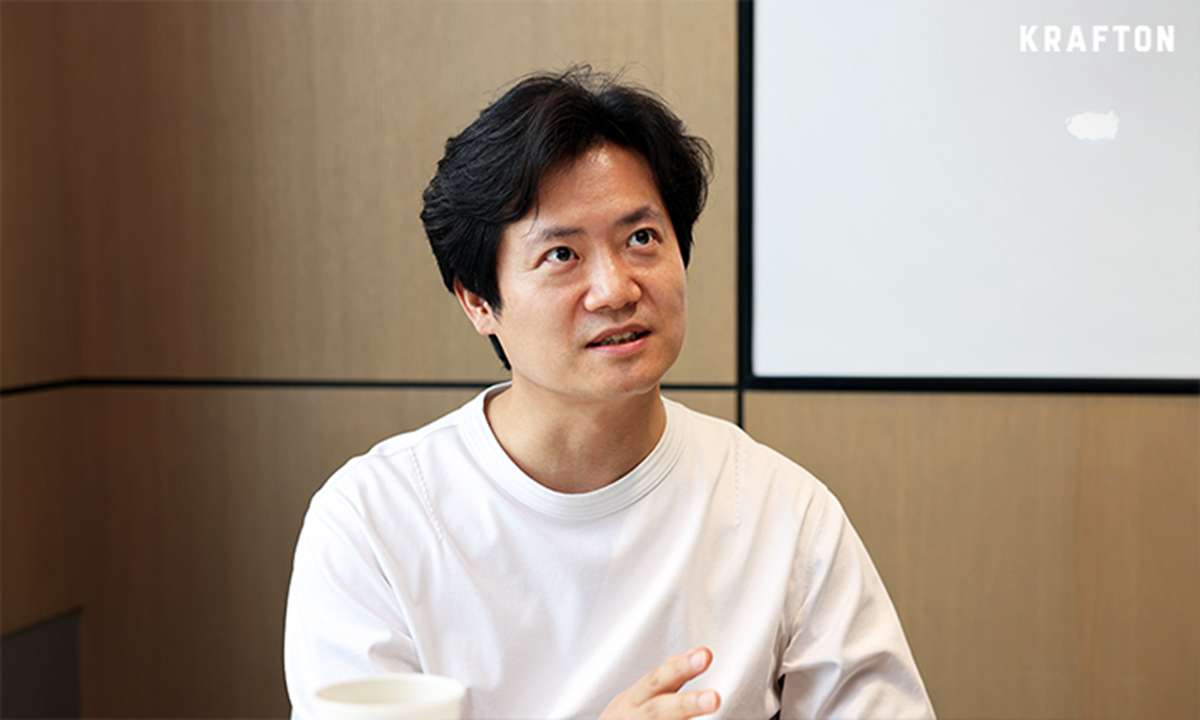
What kind of merit would you say joining and working with Project Beluga might have on someone’s career?
Dongwoon: I think the biggest merit is being able to take on a “zero-to-one” challenge of creating something completely new. We’re striving to become a “leader,” not a “follower.” That’s probably the most valuable experience we can offer. You know, walking off the beaten path.
Changho: Our project is about a year old at this point. It’s still at an early stage for new coworkers who join the project right now. I don’t think it’s a common experience to be able to join a project in its infancy and take on a challenge together. I believe there’s a lot to gain and learn from this opportunity. Beluga Dev Team has several veteran engineers and capable junior coworkers, so I think we offer a considerable array of things to learn.
Jejoon: At Beluga Biz Team, it’s possible to experience the freedom and opportunity to get involved in various decision-making processes. I think we offer an experience that other companies in this field would only offer to those with more experience.
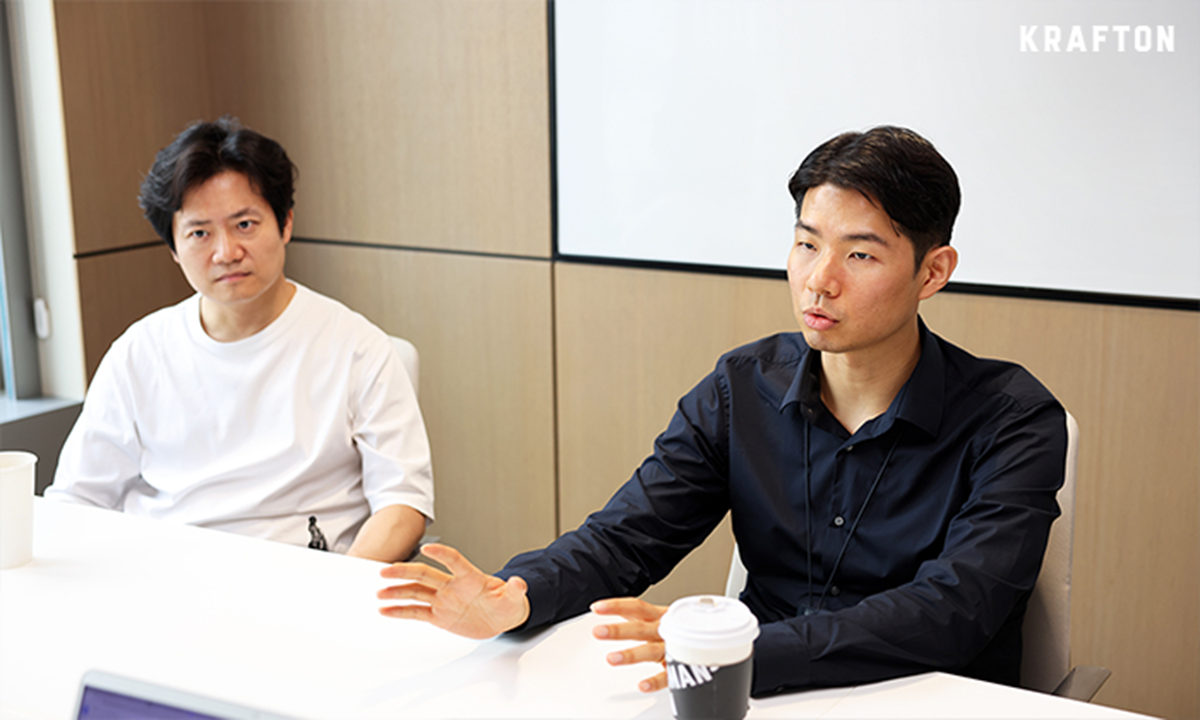
Could you say a final word to those who are interested in Project Beluga’s endeavor?
Changho: We’re creating both a web-based production tool and a content platform in the form of a mobile app, so we welcome all those involved in web development, back-end development, and app development!
Jejoon: I would like to say that anyone who wants to take part firsthand in leading various tasks from marketing to community building will have a good time working alongside us.
Dongwoon: We’re using audio contents to create new experiences and bring innovation to the production, distribution, and consumption processes. I would appreciate the interest of all those who want to work with us to create a product that has never existed before.
